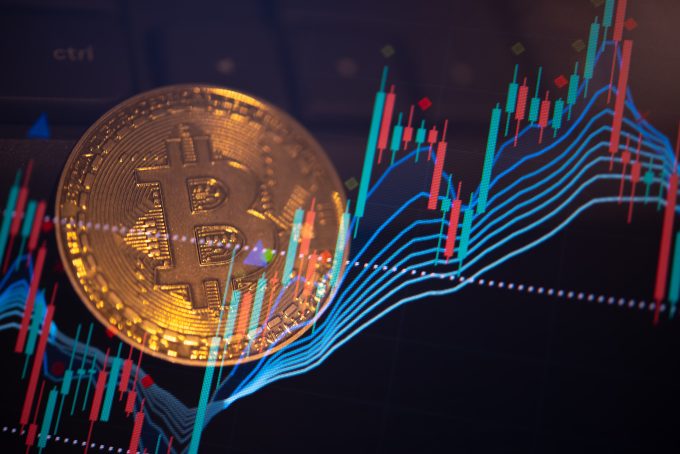Key Highlights:
-
Kalshi raises $300 million in Series D funding to expand its global prediction marketplace to 140 countries.
-
Democratic lawmakers face backlash for proposing a “restricted list” of DeFi protocols, seen by critics as a threat to innovation.
-
Roger Ver settles with the U.S. Justice Department, reportedly avoiding prison time over long-standing tax charges.
Crypto Markets See Renewed Energy Amid Expansions and Legal Shifts
The cryptocurrency market closed the day mixed, with Bitcoin hovering around $64,200, down 0.4%, while Ethereum held steady near $2,520. Market sentiment was buoyed by major venture capital activity and notable legal developments that underscored the sector’s evolving regulatory landscape.
From the $300 million funding boost for Kalshi to new DeFi regulatory proposals out of Washington, the day’s events highlighted the tension between rapid innovation and tightening oversight — a balance that continues to define the crypto narrative heading into Q4 2025.
Kalshi Raises $300 Million to Expand Global Prediction Market Reach
United States–based prediction marketplace Kalshi announced a major Series D funding round worth $300 million, led by Sequoia Capital and Andreessen Horowitz (a16z), with participation from Paradigm, Coinbase Ventures, and CapitalG.
The raise pushes Kalshi’s valuation to $5 billion, up from $2 billion in June, when it closed a $185 million Series C round. According to the company, the capital will fund its expansion into more than 140 countries, making it the “world’s only unified global prediction market.”
“International users can now access the platform with an identical experience to American users,” Kalshi said in its statement.
The company’s growth comes amid renewed interest in prediction markets, as traders increasingly turn to tokenized event markets as a form of speculation beyond traditional crypto assets. Analysts note that Kalshi’s expansion underscores a shift toward financialization of social sentiment, integrating real-world events into blockchain-linked economic activity.
DeFi Faces Political Heat as Democrats Propose ‘Restricted List’
On Capitol Hill, Democratic senators reportedly submitted a counterproposal to the crypto market structure bill, introducing the idea of a “restricted list” of decentralized finance (DeFi) protocols deemed too risky by the U.S. Treasury Department.
Critics, including prominent industry lawyer Jake Chervinsky, warned the proposal could “kill DeFi” by criminalizing the use of certain open-source protocols.
“It’s so bad. It doesn’t regulate crypto; it bans crypto,” Chervinsky said on X (formerly Twitter).
The proposal’s Know Your Customer (KYC) requirements for non-custodial wallets and decentralized apps drew heavy criticism from industry associations, including the Blockchain Association, whose CEO argued that such restrictions would drive innovation offshore.
The controversy adds another layer of uncertainty for the crypto industry, which has been seeking regulatory clarity since the bipartisan CLARITY Act passed the House in July by a 294–134 vote.
Roger Ver Settles With DOJ Over Tax Evasion Allegations
In legal developments, early Bitcoin investor and Bitcoin Cash (BCH) advocate Roger Ver has reportedly reached a settlement with the U.S. Department of Justice (DOJ) to avoid prison in connection with tax evasion charges dating back to 2018.
Ver, once nicknamed “Bitcoin Jesus,” was accused of failing to report capital gains after renouncing his U.S. citizenship. The settlement terms have not been made public, but reports suggest the agreement involves a financial penalty rather than incarceration.
Market observers view the resolution as a symbolic turning point in crypto’s ongoing reconciliation with law enforcement agencies. It signals that legacy disputes from crypto’s early era are being resolved — potentially clearing the path for more institutional engagement.
Market Outlook: Innovation Meets Regulation
The day’s developments encapsulate the crypto market’s dual identity — as both an engine of financial innovation and a lightning rod for political scrutiny. Venture capital remains confident, pouring billions into Web3 infrastructure and prediction markets, while lawmakers wrestle with how to balance consumer protection and decentralization.
As Bitcoin maintains its position above $64,000 and institutional inflows through ETFs and venture deals remain strong, investors appear cautiously optimistic. The industry’s next phase will hinge not only on price trends but also on regulatory adaptability, as the tug-of-war between innovation and oversight intensifies heading into 2026.
Comparison, examination, and analysis between investment houses
Leave your details, and an expert from our team will get back to you as soon as possible












Leave a comment